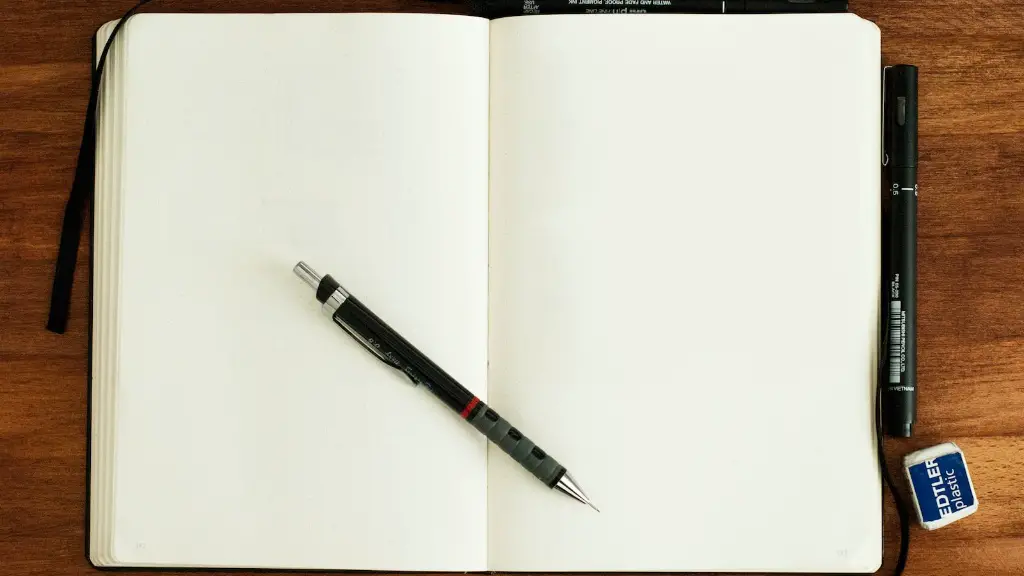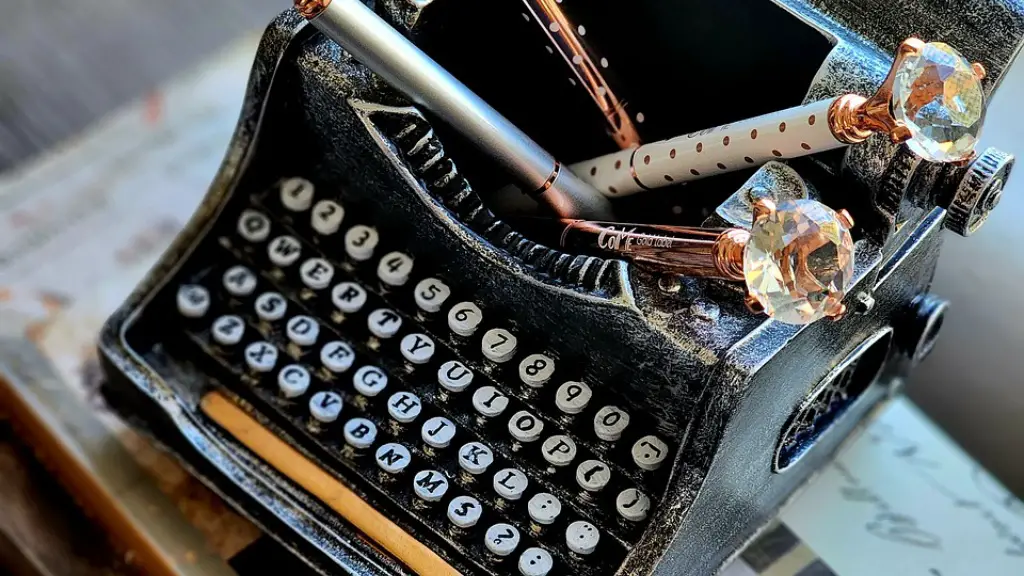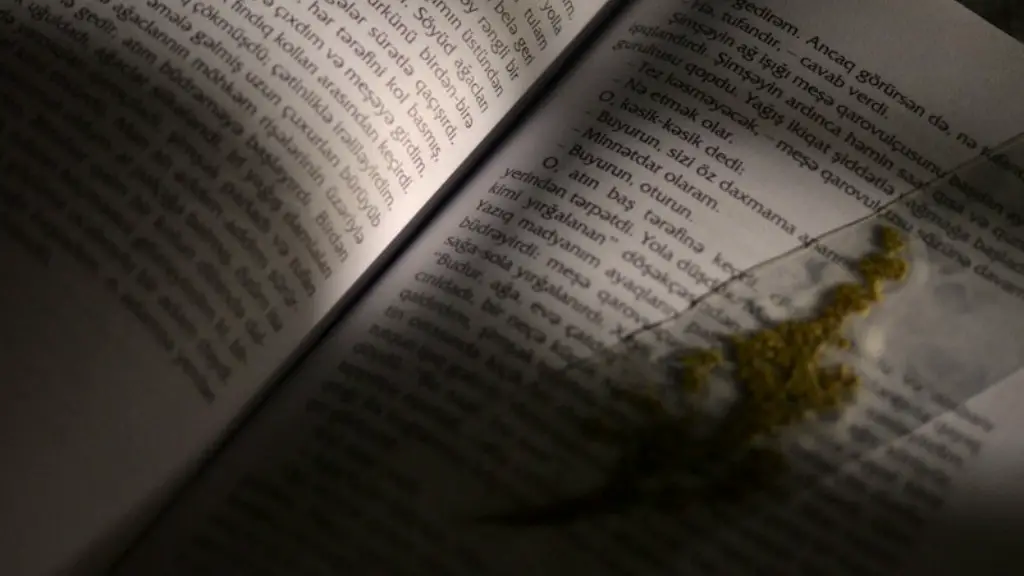Does poetry follow grammar rules? This is a frequently asked question, as the definition of poetry can be quite subjective. Different schools of thought have varying opinions on the matter, and some even consider it to be an art form with its own unique set of guidelines. This article takes a closer look at the pros and cons of grammar rules in poetry and examines the various aspects of this debate.
On one hand, some experts believe that poetry should be free of grammar rules and regulations. They contend that art should have no boundaries and should be unrestricted in its creativity. This argument is particularly strong when considering the various types of poetic expression, such as free verse, stream of consciousness, and surrealism, which all differ from each other but are still considered to be valid forms of poetry. By allowing poets to express themselves freely, without being bound to the traditional rules of grammar and syntax, experts suggest that poets will be able to fully explore their creativity and develop their writing in novel and innovative ways.
On the other hand, some experts argue in favor of strict adherence to grammar rules. These experts claim that it is important for poets to remain consistent with their language usage, as well as to convey their ideas and messages in a clear manner. If grammar rules are broken indiscriminately, some experts suggest, the poem or passage may become confusing and difficult to understand. They recommend that poets should pay special attention to punctuation and capitalization in order to ensure that their works are both easy to read and understandable.
Overall, it can be concluded that the debate regarding grammar rules in poetry is complex, and that both sides may have valid arguments. Poets may choose to completely ignore grammar rules, or to adhere to them strictly. It is ultimately up to the poet to decide which approach is best suited to their work, as well as what purpose the poem will serve. Different schools of thought may have diverse opinions about this matter, but one thing is for certain: poetry will always remain a highly subjective art form.
Grammatical Structures
In addition to grammar rules, experts have discussed the importance of grammatical structure in poetry. Unlike prose, the structure of a poem often greatly alters its meaning or message. Poets may use different techniques, such as effective diction, internal rhyme, and meter, to convey their thoughts and feelings in a concise and effective manner. By paying close attention to the various components of their works, such as stanza length, punctuation, and line breaks, poets are more likely to create a poem with a clear and defined structure.
Many experts believe that grammar rules, along with established grammatical structures, are necessary for a successful poem. They argue that without these, it would be difficult for the reader to comprehend the poet’s ideas and messages. Moreover, traditional grammatical structures may be necessary for the poem to flow in the manner that the poet desires. It is important for poets to be aware of the various elements of grammar and punctuation if they wish to communicate their thoughts effectively and succinctly.
Opting Out of Grammar Rules
Although many experts argue in favor of following grammar rules, there are some poets who choose to opt out of traditional rules altogether. Some of these poets believe that following grammar rules is too restrictive, and they use their works to push past the traditional boundaries of language and syntax. By taking risks with their choice of words and structure, these poets are able to create truly unique and powerful works which break away from the conventions of grammar.
In the age of modern technology, some poets even go as far as to use coding language and algorithms to write their poetry. By using a computer-based program, poets are able to create works which would be practically impossible to write without the assistance of a computer. Although this approach may be considered unorthodox, it still provides poets with an interesting and innovative way to express themselves.
Overall, it is important for poets to understand the different approaches to grammar in poetry. Poets may choose to adhere to traditional rules and regulations, or to break the mold and create their own unique style. Either way, it is up to the poets to decide which approach is most suitable for their works.
Grammar in Poetry Analysis
When analysing a poem, it is important to pay special attention to the grammar rules that have been used. By understanding the poet’s use of grammar, readers are able to gain insight into the poem’s subject matter and meaning. For example, a poem written in iambic pentameter may convey a different tone and message than a poem written in free verse. As such, examining the grammar rules used by the poet can be a great way to gain an in-depth understanding of the poem’s structure and meaning.
Many experts believe that grammar is an important tool in helping readers to appreciate and analyse the works of poets. By studying the words, syntax, and punctuation used, readers are able to gain insights into the poet’s message, enabling them to appreciate the poem on a deeper level. As such, grammar is often seen as an integral part of understanding and appreciating the poetic form.
Educating and Influencing Poets
In addition to helping readers to appreciate and understand the works of poets, an understanding of grammar rules could also be beneficial to poets themselves. By studying the various rules and conventions of grammar, poets may gain new insights into their own works and the works of others. Moreover, understanding the rules of grammar may even inspire poets to break the mold and take risks with their writing, enabling them to create truly unique and powerful works.
In addition, some experts believe that studying the works of other poets is a great way to understand how to incorporate grammar effectively. By studying the works of established poets, readers and poets will be able to gain valuable insights into the many different ways in which grammar rules can be used. By learning from these examples, poets may be able to gain new ideas and develop their own unique style of writing.
Modern Take on Grammar with Poetry
As methods of communication have changed with the times, so has the definition of grammar in poetry. In the modern world, many poets have chosen to break away from traditional conventions and use technology as a tool to create works of art. By using devices such as computers and smartphones, poets have been able to communicate their ideas in new ways, often with words and punctuations that would not be considered “grammatically correct.”
In some cases, poets have even chosen to blend traditional poetry with modern technology. For example, some poets have chosen to use coding language and computer-based programs to write their poetry. By using technology as a tool, poets are able to create works of art that could not have been possible a few decades ago.
Overall, it is clear that grammar rules in poetry are highly subjective and that different schools of thought may have different opinions on the matter. Poets may choose to adhere to traditional rules, or they can take risks and explore new methods of expression. Ultimately, it is up to the poet to decide which approach is best suited to their works and which approach will enable them to create the most powerful and effective works of poetry.




